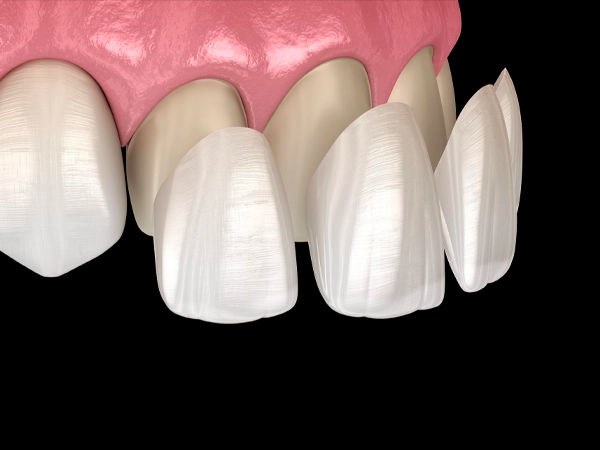
Dental veneers have become one of the most popular cosmetic dentistry treatments in Dubai, offering a quick and effective way to achieve a perfect smile. Whether you’re covering up chipped, discolored, or slightly misaligned teeth, veneers can transform your appearance and boost your confidence. But how long do dental veneers actually last, especially when properly maintained?
Understanding Dental Veneers:
Dental veneers (قشور الأسنان) are thin shells typically made from porcelain or composite resin. They are bonded to the front surface of the teeth to improve aesthetics and function. In Dubai, many people opt for this solution due to its long-lasting, natural-looking results.
Porcelain veneers are known for their durability and resistance to stains, while composite resin veneers are more affordable and quicker to apply but may not last as long.
Average Lifespan of Dental Veneers:
With proper care, porcelain veneers can last between 10 to 15 years, while composite veneers usually last around 5 to 7 years. However, these estimates depend on several factors, including:
-
The material used
-
Your oral hygiene habits
-
Your lifestyle choices (e.g., smoking, drinking coffee or wine)
-
How well you follow your dentist’s aftercare instructions
How to Make Your Veneers Last Longer?
If you’re investing in dental veneers in Dubai, you’ll want to make sure they stay in great condition for as long as possible. Here are some tips to help prolong their lifespan:
Maintain Good Oral Hygiene:
Just like your natural teeth, veneers require regular brushing and flossing. Using a non-abrasive toothpaste and a soft-bristled toothbrush will prevent surface scratches and maintain their shine.
Avoid Biting Hard Objects:
Biting into hard foods or objects (like pens, ice, or fingernails) can cause your veneers to crack or chip. Use your back teeth for chewing tough foods and avoid using your teeth as tools.
Minimize Stain-Causing Foods and Drinks:
While porcelain veneers resist staining better than composite ones, repeated exposure to coffee, red wine, tea, and tobacco can cause discoloration over time—especially around the edges. Limiting these substances helps keep your smile bright.
Wear a Night Guard if You Grind Your Teeth:
Bruxism, or teeth grinding, can significantly reduce the life of your veneers. Wearing a custom-fitted night guard can protect both your natural teeth and your veneers while you sleep.
Visit Your Dentist Regularly:
Routine dental check-ups are key to ensuring your veneers—and your natural teeth—stay in optimal condition. Regular cleanings help catch potential issues early and maintain your oral health.
Frequently Asked Questions (FAQs):
How do I know when it’s time to replace my dental veneers?
You’ll know it’s time to replace them if they become loose, chipped, or discolored around the edges. Your dentist will advise on whether repair or replacement is best.
Do veneers require special cleaning?
No special cleaning is needed beyond regular brushing, flossing, and dental visits. Just make sure to use gentle products to avoid damaging the veneer surface.
Can I get veneers on all my teeth?
Yes, though most people get them on the front-facing teeth only. Your dentist can recommend how many are needed to achieve your aesthetic goals.
Are veneers reversible?
Veneers are considered a permanent solution because some enamel is removed during placement. Replacing them later is possible, but going back to your original teeth is not.
Is there any downtime after getting veneers?
Most patients can return to their normal activities immediately, although some sensitivity may occur for a few days.
Conclusion:
Dental veneers (قشور الأسنان) can be a long-lasting and life-changing investment in your smile when properly cared for. By maintaining good oral hygiene, avoiding damaging habits, and keeping up with dental visits, you can enjoy your enhanced look for many years. Whether you’re considering veneers or already have them, knowing how to take care of them is key to making the most of your beautiful new smile.







